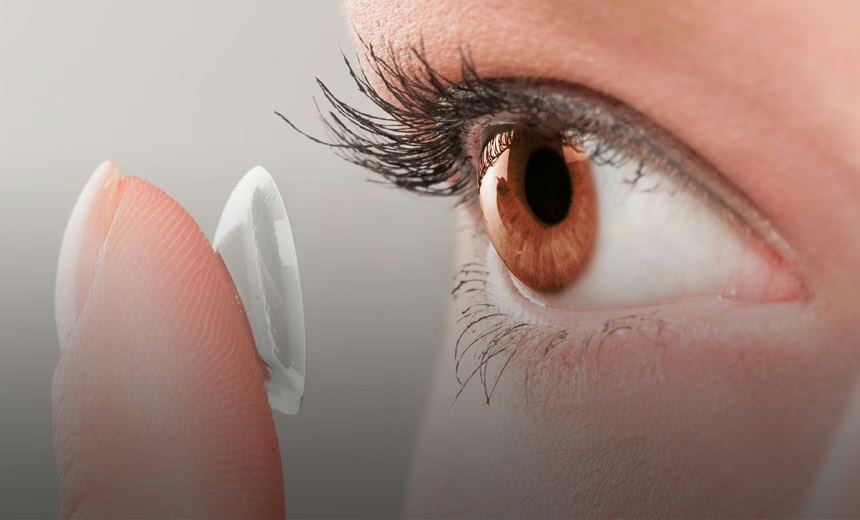Subscribe to eyeMatters periodic news
"*" indicates required fields
Laser eye surgery and contact lenses

If you regularly wear contact lenses and are considering laser eye surgery, this article is intended to offer you useful information.
Contact lenses and your initial laser eye surgery consultation
When you book your initial appointment for an assessment, you will be asked to discontinue wearing contact lenses before your consultation. Contact lenses can alter the shape of the cornea, and it may take a few weeks for your corneas to resume their natural shape. It’s important that your ophthalmologist can evaluate the true shape of your cornea, in order to offer you the best possible vision solution.
Although you will be advised of the exact amount of time to go ‘contact-less’ at the time of booking your appointment, the following is a general guide:
- Soft contacts – stop wearing these one to two weeks prior to your initial consultation.
- Toric soft lenses or RGP lenses – stop wearing these for at least three weeks prior to your initial evaluation.
- Hard lenses – stop wearing these for at least four weeks prior to your initial evaluation.
Of course, these are only a guide and some clinics and doctors may have slightly different suggestions.
If you only wear contact lenses and have no glasses, one of our refractive consultants will need to advise you further before your evaluation.
Why you should stop wearing contact lenses before laser eye surgery
Should you proceed with laser eye surgery, your corneas will need to be their natural shape at the time of the procedure. This period could be up to four weeks depending on the type of contact lenses you normally wear. You will be given instructions upon booking your laser eye surgery procedure.
Contact-lens-related problems
A common reason for considering laser eye surgery is when, after wearing contact lenses for a number of years, you start noticing your eyes dry out throughout the day, or you experience increasing levels of discomfort. Some people even find that continual wear of contact lenses can cause corneal abrasions, infections or corneal ulcers.
Often, simply changing the type of contact lens (as advised by your optometrist) will alleviate the problem. However, if the problem is ongoing, you may need to consider wearing glasses or choosing a vision correction procedure such as laser eye surgery.
More information on laser eye surgery and contact lenses
If you have any questions regarding wearing contact lenses and laser eye surgery, give us a call on 1800 1 LASER.
Learn more about laser eye surgery in New South Wales, Queensland, South Australia or Victoria.
The information on this page is general in nature. All medical and surgical procedures have potential benefits and risks. Consult your ophthalmologist for specific medical advice.
Date last reviewed: 2026-01-28 | Date for next review: 2028-01-28
